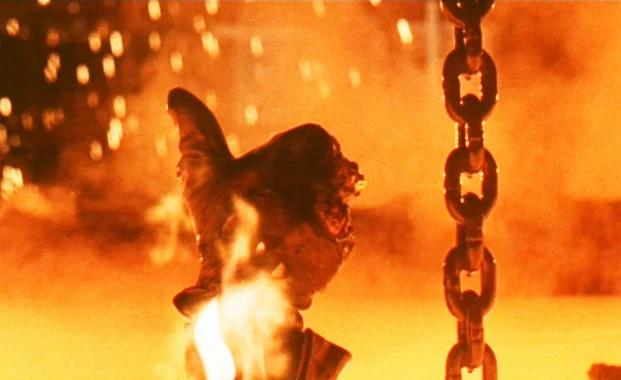Cast: Arnold Schwarzenegger, Lou Ferrigno, Matty Ferrigno, Victoria Ferrigno, Mike Katz, Franco Columbu, Ed Corney, Ken Waller, Serge Nubret. Screenplay: George Butler, Robert Fiore. Cinematography: Robert Fiore. Film editing: Geof Bartz, Larence Silk. Music: Michael Small.
The semi-documentary Pumping Iron is often credited as the movie that made an unlikely star (not to mention California governor) out of Arnold Schwarzenegger. But if anything, the film shows that Schwarzenegger possessed the kind of ambition and drive and intelligence that might have propelled his career anyway. The film gets its narrative drive from competition, first between the aspiring bodybuilder Mike Katz and the more experienced Ken Waller, and then repeating that motif with relative newcomer Lou Ferrigno taking on Schwarzenegger at the Mr. Olympia contest. There’s a good deal of wit in the characterization of the men, as well as a good deal of fictionalizing – for example, in the film it’s implied that Waller wins because he steals Katz’s “lucky” T-shirt, when in fact it was only a prank that didn’t really annoy Katz that much. Schwarzenegger finds similar ways to needle Ferrigno. Pumping Iron is also credited with having propelled physical fitness into a national phenomenon and turning a struggling Venice Beach, Calif., gym into the franchised Gold’s Gym International, Inc, with almost 700 locations around the world. It legitimized competitive bodybuilding as a sport – or almost: There are still those who find the oiled, hairless bodies displaying slabs and blobs of muscle masses in strained and contorted poses ludicrous, and who find the sport graceless in comparison with others that display bodies in motion, like running, swimming, diving, or gymnastics. But even Pumping Iron hints at this gracelessness with an opening scene in which a ballet instructor tries to help Schwarzenegger and other bodybuilders refine their poses.









